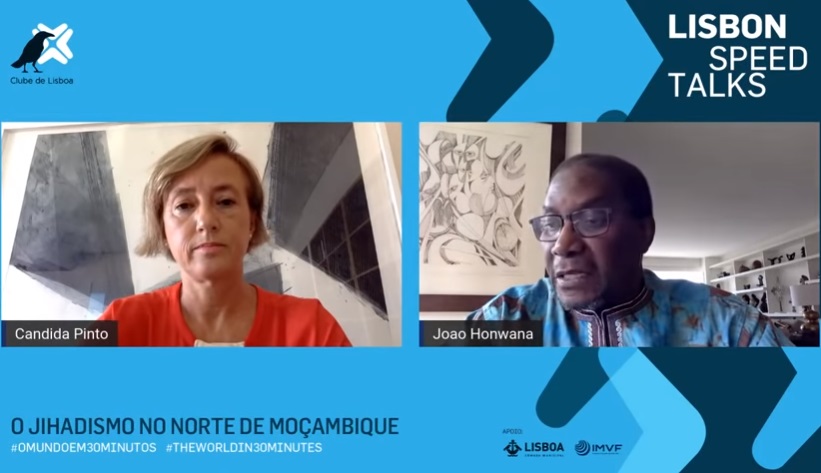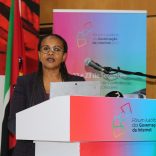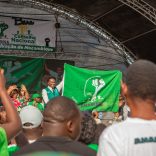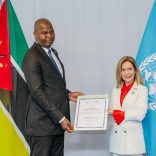Mozambique: Governor Tauabo visits Palma, promises new strategy against attacks in Cabo Delgado
State may create conditions to negotiate with Mozambican citizens in ‘jihadist’ groups – Watch the João Bernardo Honwana full interview

Screen grab: Conferências de Lisboa - Clube de Lisboa
- João Bernardo Honwana believes that Mozambique may create conditions for “a negotiation between the Mozambican state and Mozambican citizens” who support the ‘jihadist’ initiative in the country, reads a Lusa report
- . But he starts his interview with Lisbon Speed talks by saying that the situation is complex, with many aspects to consider. Watch the full video below:
João Bernardo Honwana believes that the Mozambican government may eventually initiate “a negotiation between the Mozambican state and Mozambican citizens” who support the “jihadist offensive” in the north of the country, and calls for the alienation of young Mozambicans from the state to be made a government priority.
“What is happening in Cabo Delgado requires a very clear distinction between Mozambican elements in this insurgency from its partners and external supporters. I do not believe that the Mozambican state may conceive the possibility of negotiating with an international jihadist movement, but conditions may eventually be created in Mozambique for a negotiation between the Mozambican state and Mozambican citizens who, in some way, are supporting this jihadist offensive,” João Bernardo Honwana said on Wednesday.
The former director of the United Nations Department of Political Affairs raised the possibility during a discussion on “Jihadism in Northern Mozambique” promoted by Clube de Lisboa in partnership with the Lisbon City Council and the Marquês de Vale Flor Institute.
Honwana also said that he believes that in Mozambique, “inside and outside the government, there is certainly the intellectual capacity to conceptualise” the situation of violence in the north of the country and “to seek systematic and systemic solutions to the problem”.
“Naturally, there is also a great capacity in terms of the goodwill and support readiness of our friends and our allies,” the Mozambican diplomat said, stressing the importance of African neighbours and extra-continental partners.
“There is a goodwill (…) in the sense of supporting the capacity of the Mozambican state to solve this problem, but it [the Mozambican state] must also be trained to make the best possible use of this goodwill,” he emphasised.
During the discussion, the diplomat also raised the need to “resolve the indifference of youth” in Mozambique in relation to the state.
“I would say that this is a risky generalisation, because of course there are exceptions, but a large part of the youth feel neglected by the state, and that they have no prospects for the future,” Honwana declared.
The diplomat said that “young people feel very alienated from” the state and the possibility of obtaining employment, and their “capacity to become adult citizen, responsible for their families” and “who participate in the national process”.
“There has to be an effort to make youth, as well as the entire Mozambican population, allies of the state in solving the problems facing national development,” he stressed.
In the past two and a half years, conflicts in northern Mozambique, particularly in the province of Cabo Delgado, have claimed the lives of at least 700 people and a humanitarian crisis affecting about 211,000 residents.
The United Nations launched, in early June, a US$35 million (€ 30 million) appeal to the international community for a Rapid Response Plan for Cabo Delgado to be implemented from May to December.
About João Bernardo Honwana
João Bernardo Honwana is a Senior Associate for the International Peacebuilding Advisory Team. João has over twenty years of experience in conflict analysis, preventive diplomacy and political mediation. He is skilled in providing advice to senior national officials and political leaders, facilitating high- level political consultations and multi-stakeholder national dialogue and reconciliation initiatives.
João has served in the UN in senior roles, including as Representative of the Secretary-General and Head of the UN Peacebuilding Support Office for Guinea- Bissau, and as Director of the Africa I and Africa II Divisions of the Department of Political Affairs. He has also been involved in UN institutional collaborations on peacemaking and peacebuilding initiatives with the African Union (AU), the European Union (EU), the Economic Community of West African States (ECOWAS), the Community of Portuguese-speaking Countries (CPLP) the Southern African Development Community (SADC) and IGAD, among others.
João was the Fall 2017 Sergio Vieira de Mello Endowed Visiting Chair in the Practice of Post-Conflict Diplomacy at Seton Hall University’s School of Diplomacy and International Relations from September 2017 to March 2018.












Leave a Reply
Be the First to Comment!
You must be logged in to post a comment.
You must be logged in to post a comment.